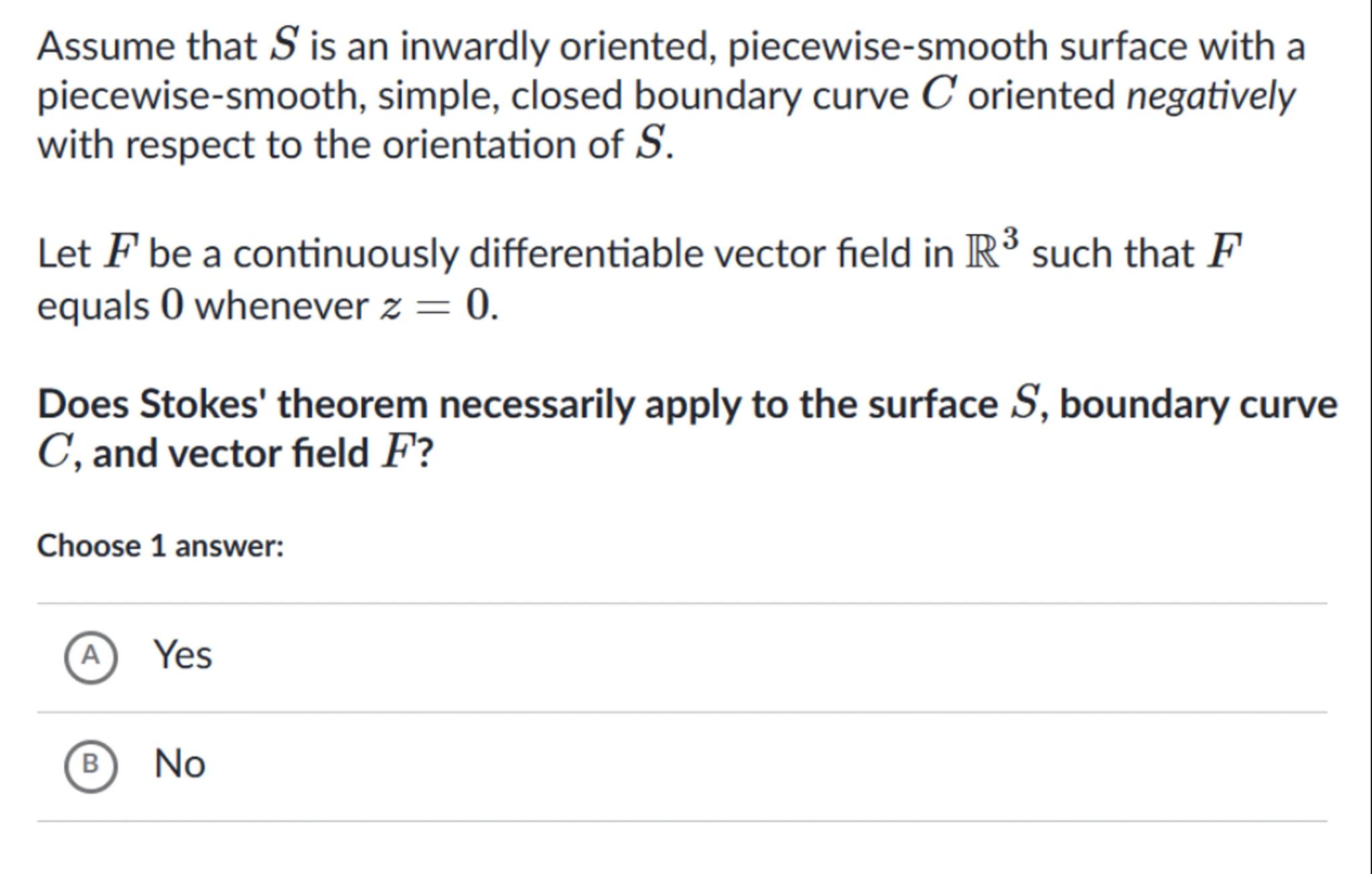
Sia

Question
Math
Posted almost 2 years ago
Assume that is an inwardly oriented, piecewise-smooth surface with a piecewise-smooth, simple, closed boundary curve oriented negatively with respect to the orientation of .
Let be a continuously differentiable vector field in such that equals 0 whenever .
Does Stokes' theorem necessarily apply to the surface , boundary curve , and vector field
Choose 1 answer:
(A) Yes
(B) No

Answer from Sia
Posted almost 2 years ago
Solution by Steps
step 2
The condition that equals 0 whenever does not violate the requirements for Stokes' theorem. The theorem does not require the vector field to be non-zero everywhere
step 3
Since is inwardly oriented with a negatively oriented boundary with respect to , and is continuously differentiable, Stokes' theorem applies to the given surface , boundary curve , and vector field
1 Answer
A
Key Concept
Stokes' theorem applicability
Explanation
Stokes' theorem applies to any piecewise-smooth surface with a piecewise-smooth boundary curve, provided the vector field is continuously differentiable over the surface and its boundary, regardless of the vector field's values on a particular plane.
Not the question you are looking for? Ask here!
Enter question by text
Enter question by image
Unlock Smarter Learning with AskSia Super!
Join Super, our all-in-one AI solution that can greatly improve your learning efficiency.
30% higher accuracy than GPT-4o
Entire learning journey support
The most student-friendly features
Study Other Question